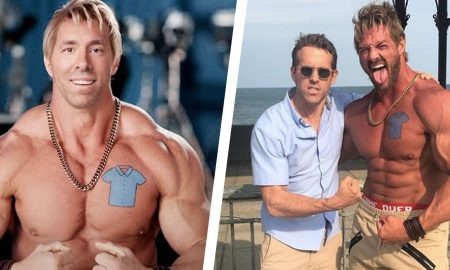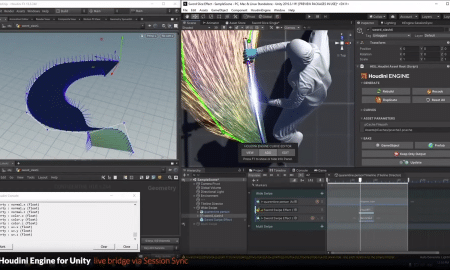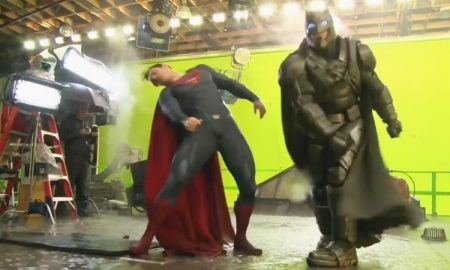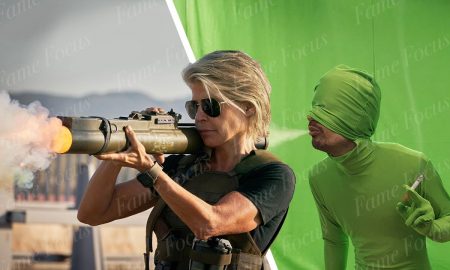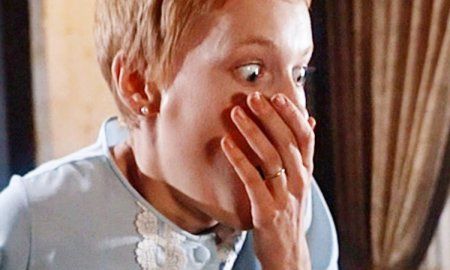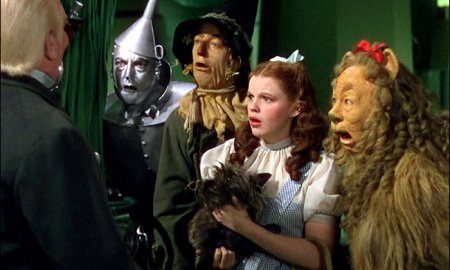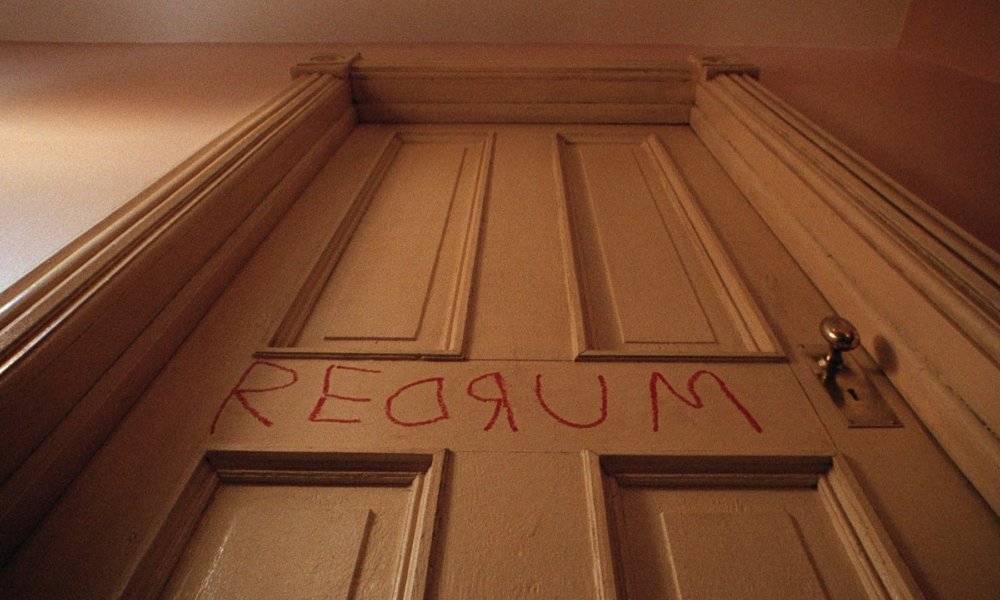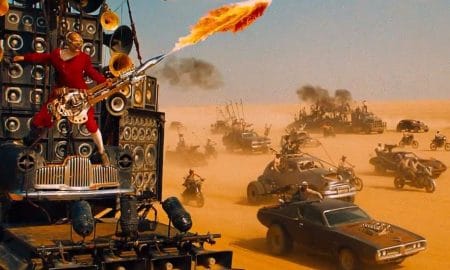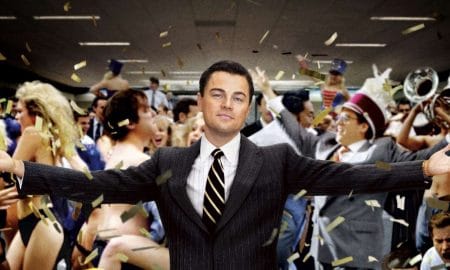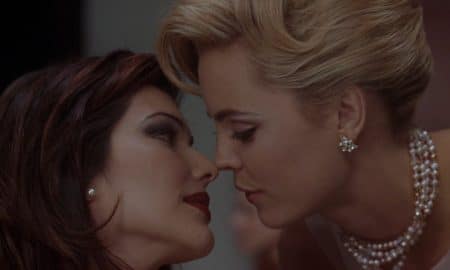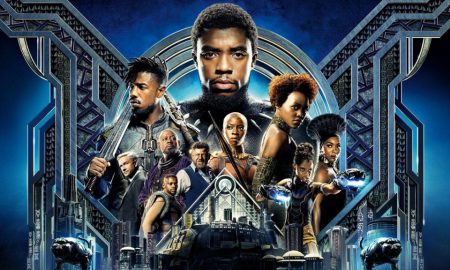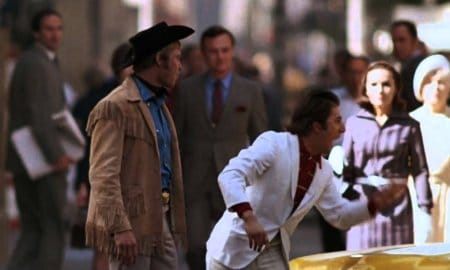Above all the other compliments you could heap on The Shining, there’s one thing that must be said first and foremost: the movie is scary as hell. Even thirty years after Stanley Kubrick’s haunted house movie was unleashed on the masses, it still packs the same punch it did initially. A modern film can layer as many computer ghosts and goblins over their footage as they want and they’ll never equal the same lurching dread you felt when Danny turned a corner to find two glassy-eyed little girls holding hands. Of course, The Shining also happens to be a masterfully produced film with several complex technical and narrative devices working throughout the film. Is it scary? You bet. But Kubrick’s macabre masterpiece is so much more than that.
1. Kubrick Was Coming Off a Flop
While Stanley Kubrick was far from prolific throughout his career, most of his films were complete successes, both critically and commercially. After seeing a string of massive successes including Paths of Glory, Spartacus, Lolita, and Dr. Strangelove, Kubrick hit a lull with the critically reviled Barry Lyndon. While the film has gained some measure of respect in the years since, Kubrick certainly had something to prove with his next picture.
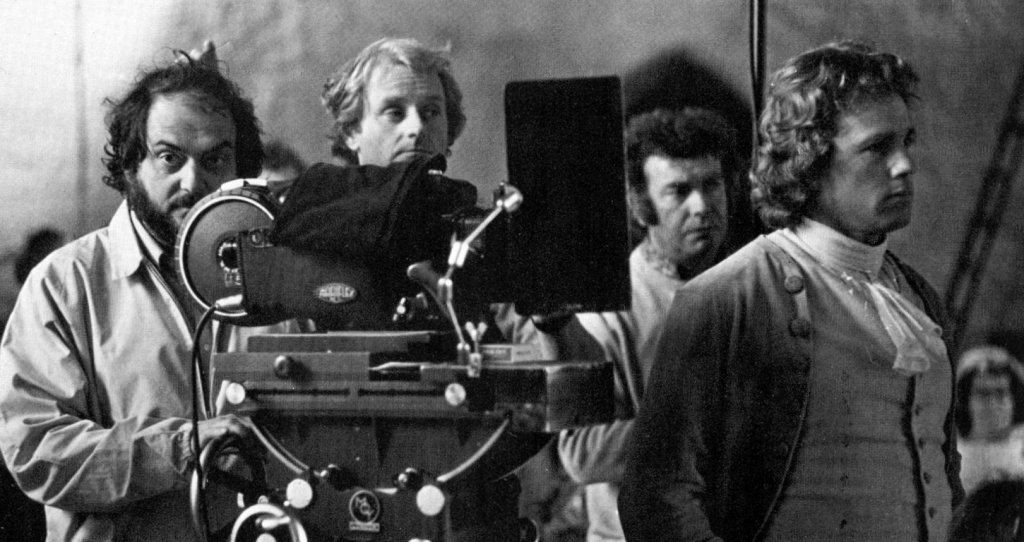
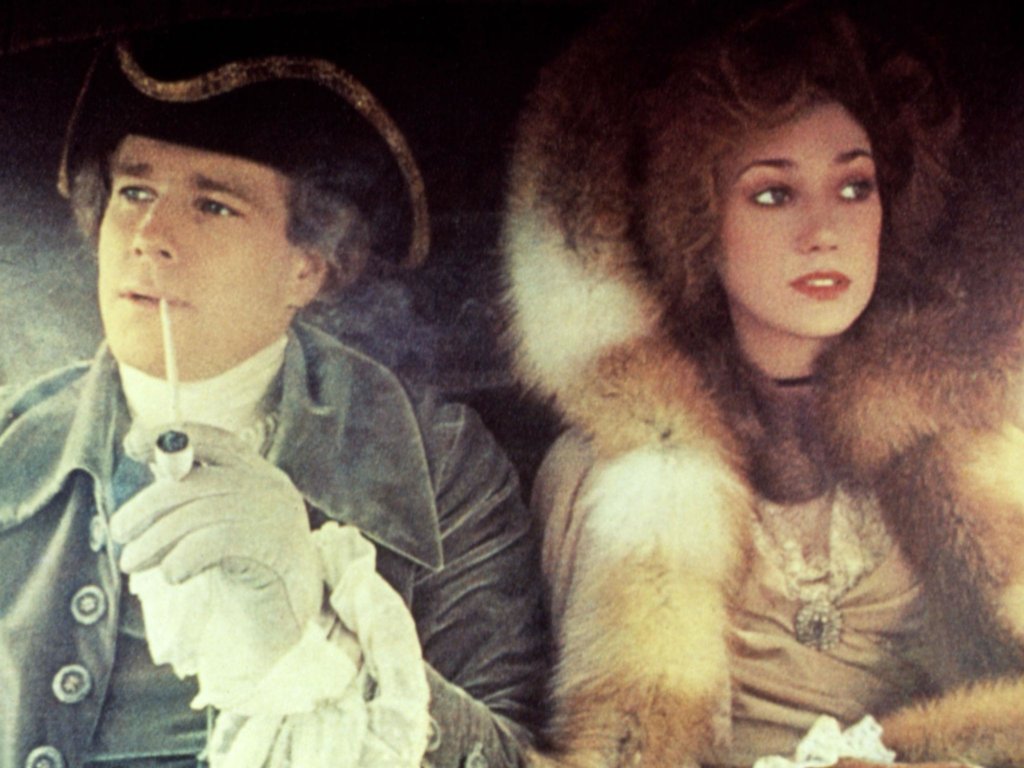
2. Stephen King Had Little Influence on ‘The Shining’
As most people know, Stephen King wasn’t a big fan of Stanley Kubrick’s adaptation of his novel. Little do most people know, Kubrick wasn’t exactly a fan of King’s writing to begin with — he once called it weak — and therefore looked to several outside sources when crafting his “adaptation” of The Shining. King even wrote a screenplay for the project that Kubrick didn’t even read.
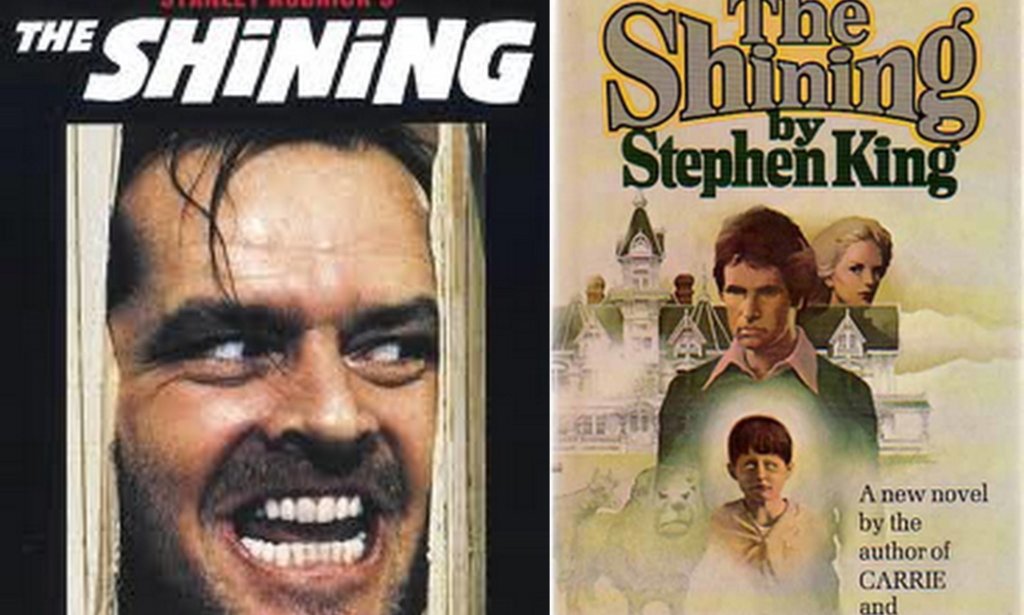
3. Kubrick Was Protective of His Young Star
In the role of young psychic Danny was newcomer Danny Lloyd, who was actually working on his first film. Not wanting to warp the child, Kubrick told him that he was working on a drama, not a horror movie. Kubrick even used a dummy in place of the child in a few shots, so that he wouldn’t have to be exposed to the nightmarish imagery of the film. Lloyd didn’t realize what had happened until several years later.
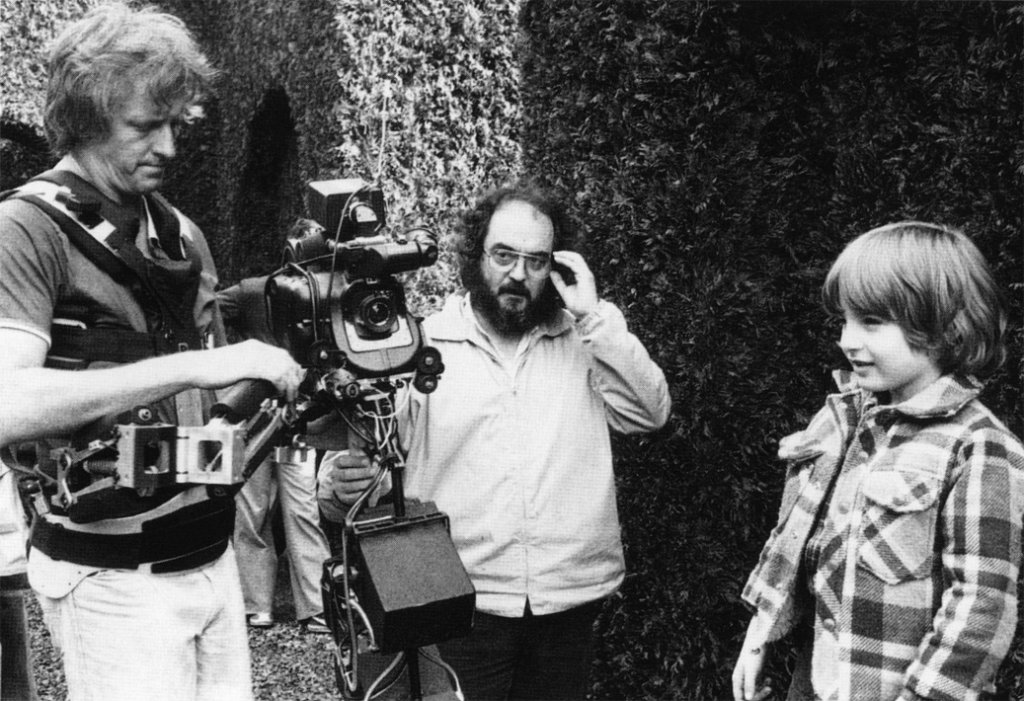
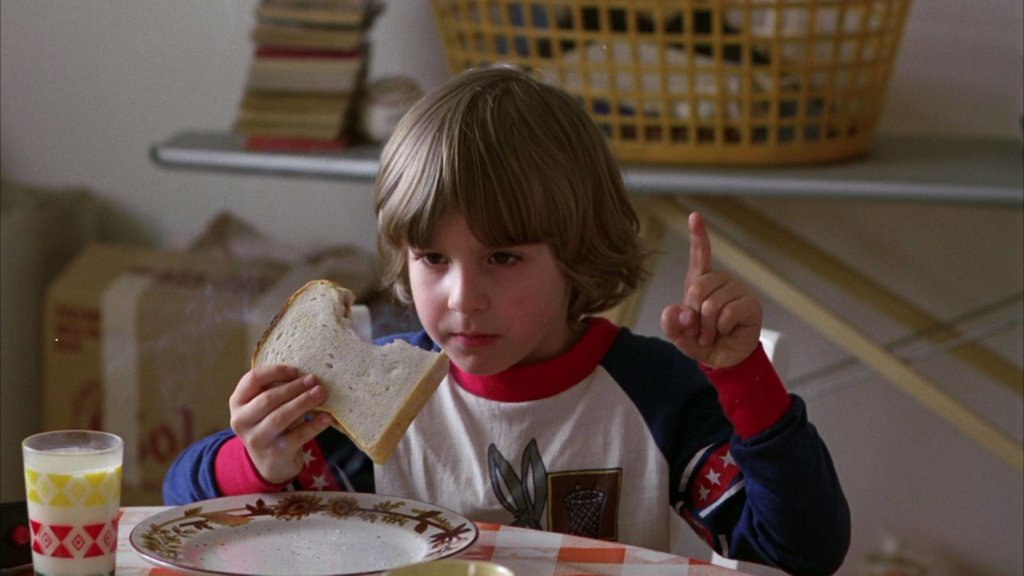

4. How They Got that Bloody Elevator Past the Censors
At the time of the film’s release, 1980, the MPAA didn’t typically allow the use of blood in any trailer that was going to be shown to wide audiences. Of course, the film’s trailer includes the movie’s now iconic depiction of an elevator opening to release a torrent of gushing blood. In order to get the scene past the censors, Kubrick actually convinced the MPAA that the blood was rusty water.
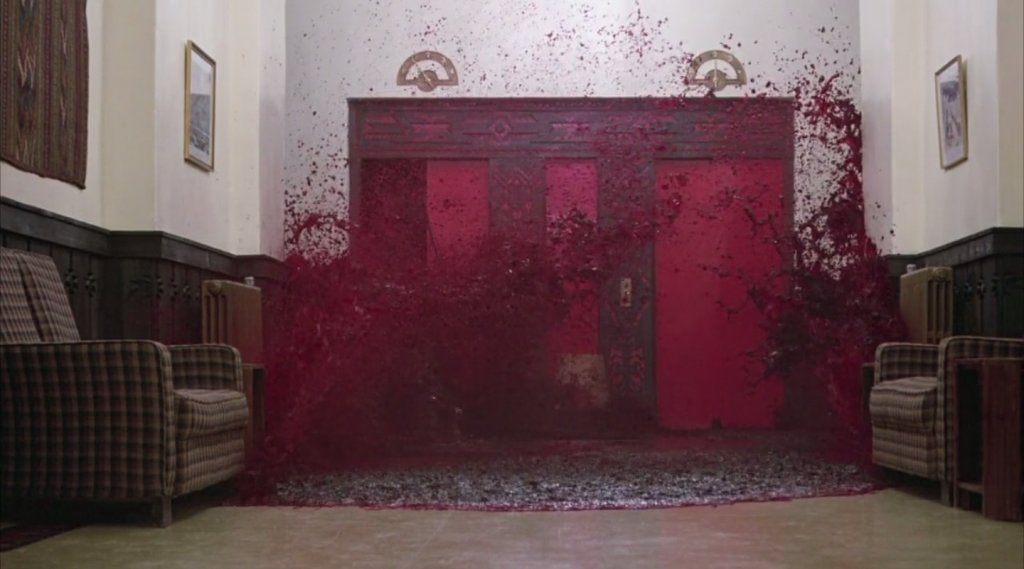
5. Jack and Shelly Consider This Film Their Hardest Shoot Ever
Both Jack Nicholson and Shelley Duvall have largely criticized the film’s reception, claiming that their efforts deserved a bit more attention. Both actors call the film one of the hardest of their careers. Of course, Kubrick a notorious perfectionist; to give you an example, the film’s infamous door scene — in which Jack Torrance hacks his way through a bathroom door, leans in, and drawls, “Here’s Johnny!” — took three full days and more than 60 doors to get right.
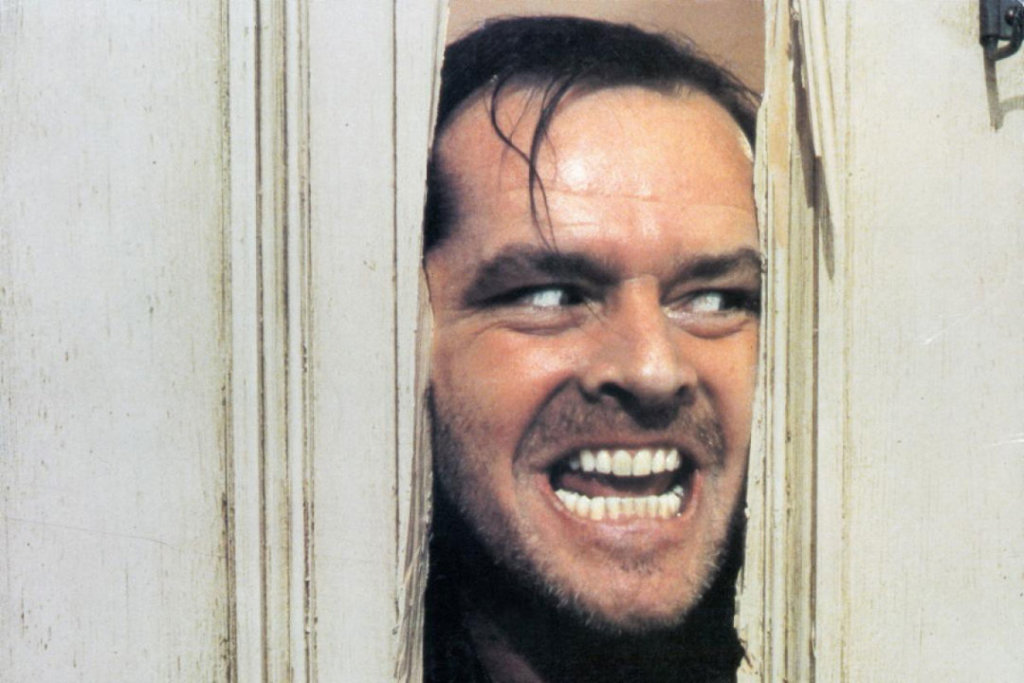
6. That Special Jack Nicholson Touch
Jack Nicholson brought his own touch to the script, and has several stories about his escapades during shooting. He was fed only cheese sandwiches during filming (which he hates) to get properly agitated. He stopped reading the script at one point during filming because so many script changes happened he claimed it wasn’t worth it. He improvised throughout the shoot, including the film’s most famous line, “Here’s Johnny!”
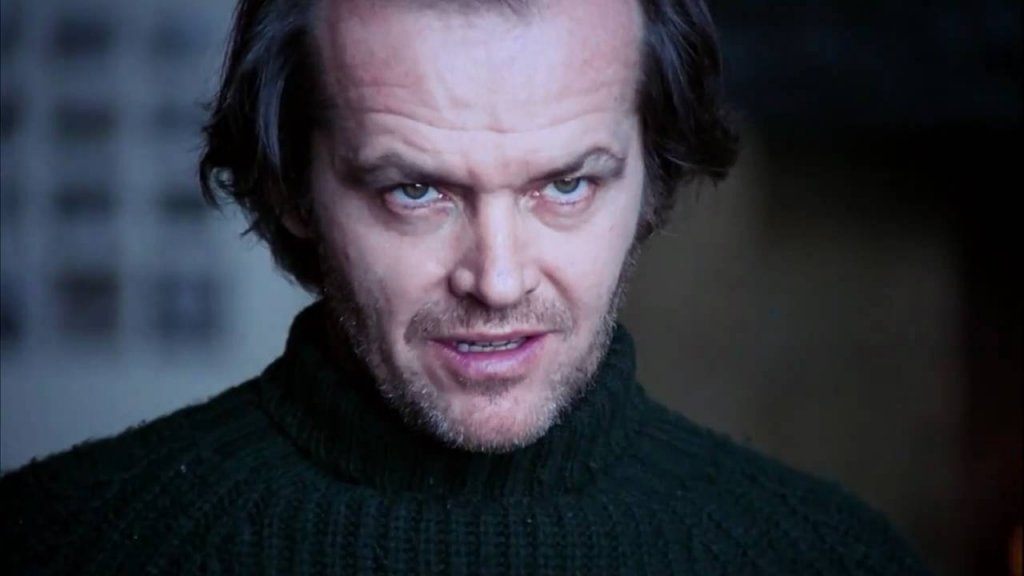
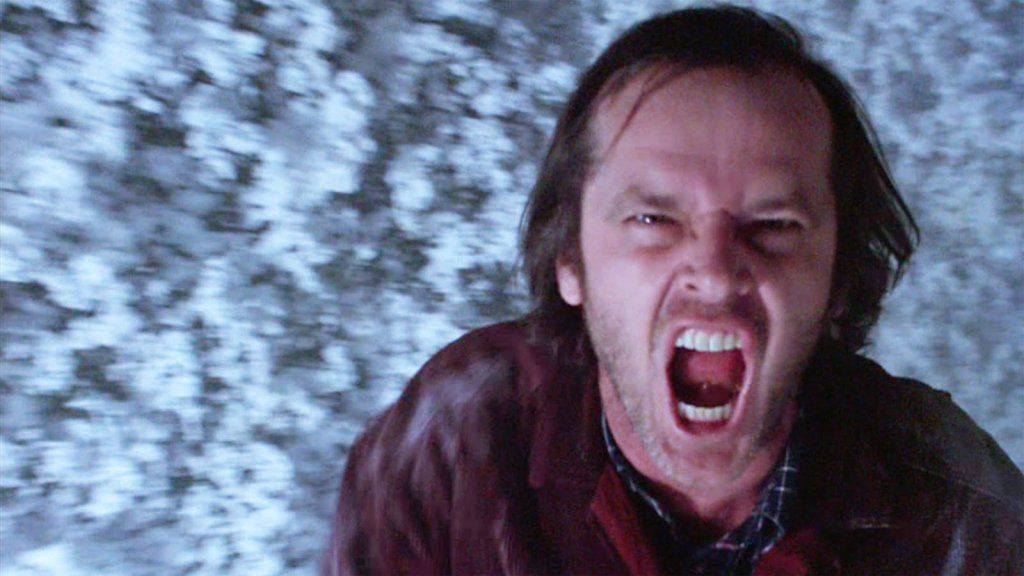
7. Kubrick the Movie Master Was Also a Chess Master
Kubrick actually called off filming for one entire day even though the film was behind schedule because he’d noticed that one of the actors — Tony Burton, the actor who played a garage worker who appears early in the film — had brought a chess board to the set. Kubrick proceeded to dismiss everyone and sit down with the glorified extra to play some chess, ultimately losing only one game in the entire series they played.
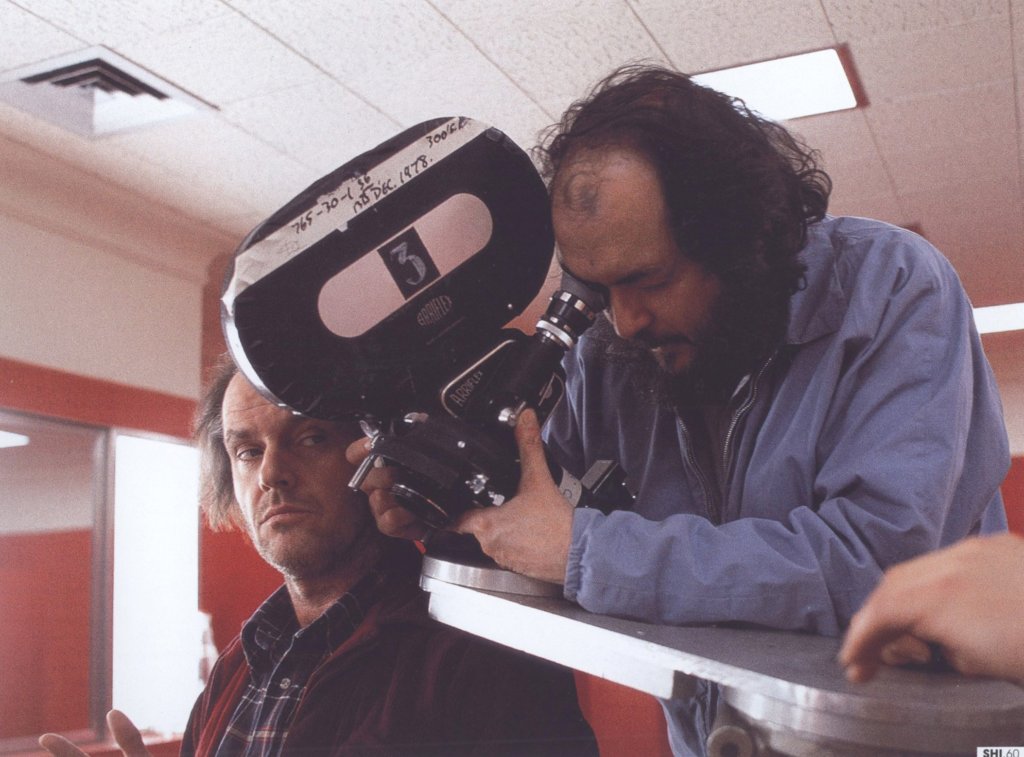
8. Kubrick Obsessed About that Gruesome Elevator Shot
One of the film’s most famous shot features a wall of blood pouring from two opening elevator doors. In spite of the fact that Kubrick was known for his numerous retakes, he got this shot right in only three takes … of course, before he put film in the camera, Kubrick spent nine days setting the shot up and testing it out. Before that, he spent nearly a year envisioning and planning the technology behind the shot itself.
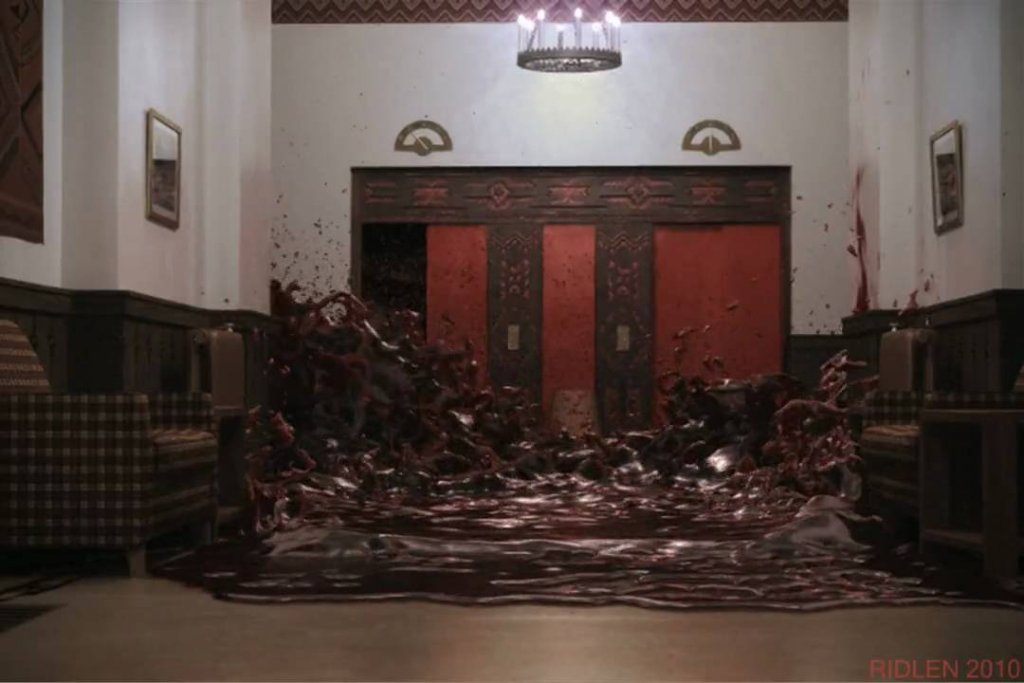
9. Kubrick Never Left England During Filming
The film’s opening credits were actually filmed without the director. Kubrick increasingly refused to leave England in his old age, and so everything that was shot on location was shot without Kubrick’s supervision. Everything that featured the actors was filmed at Elstree Studios in England, which actually caught fire at one point thanks to the intense heat produced by the equipment.

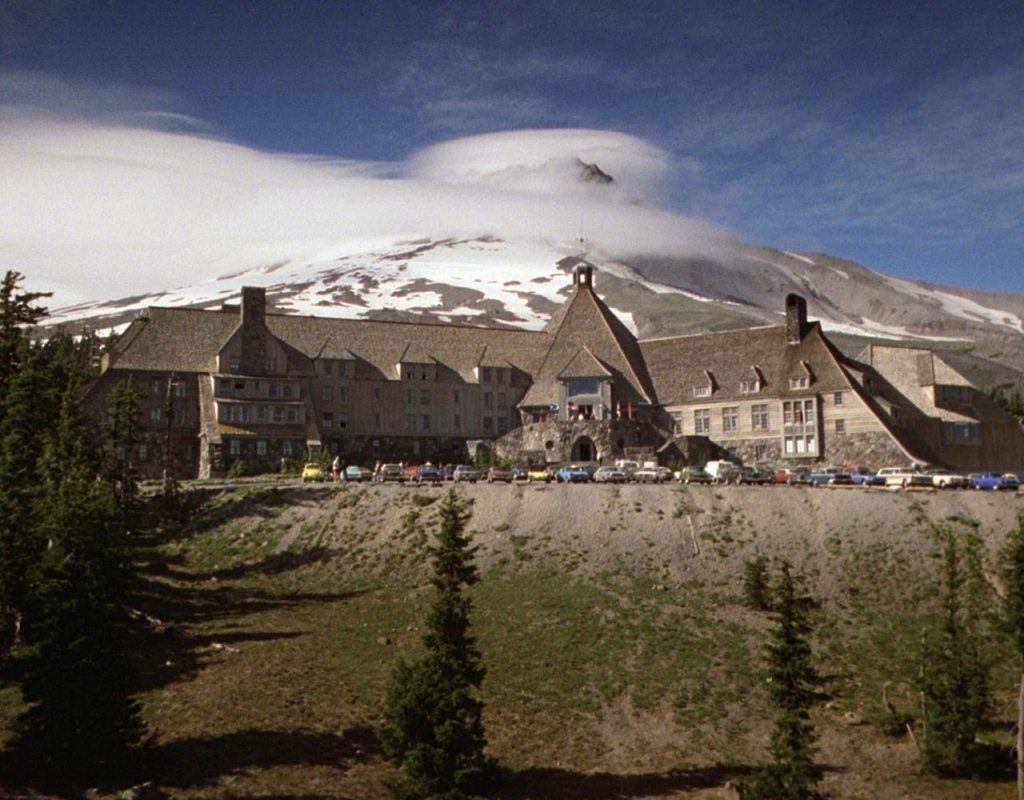
10. The Winding Hallway Scene Was Shot By Kubrick Himself
In another important sequence in the film, one camera follows Dany as he Big Wheels around the Overlook Hotel, turning corner after corner in a gut-wrenching amplification of the tension that results in the first appearance of the twins. Kubrick felt this shot was so important, that he strapped the SteadyCam harness to his own shoulders and shot the scene himself.
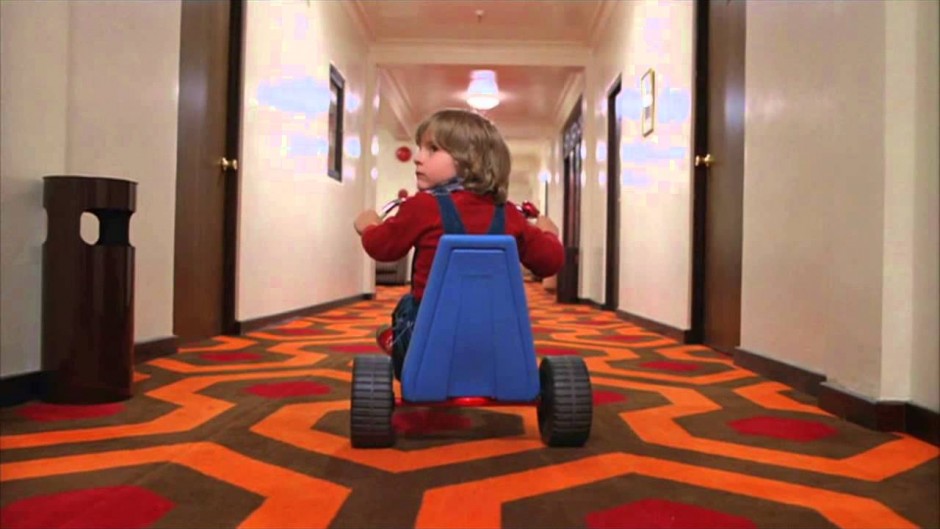
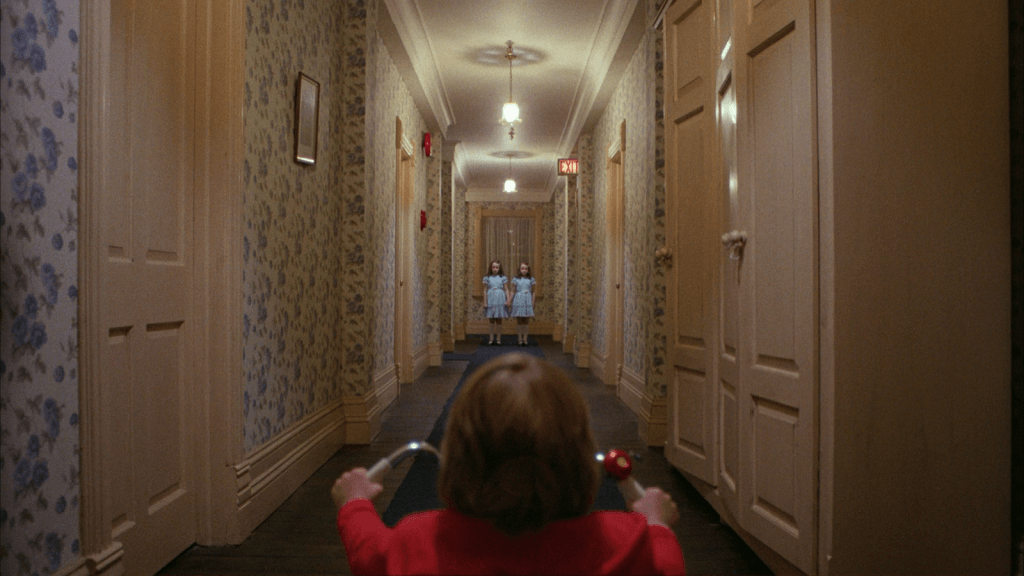
11. Pressure from the Director Drove Duvall to the Brink
The film’s lead actress, Shelley Duvall, says the film was the single hardest project she’s ever worked on. Kubrick was reported to verbally abuse the young actress, telling her that she was wasting everyone’s time. She reportedly suffered from nervous exhaustion throughout filming, including physical illness and hair loss. Later, she reflected that the director was most likely trying to help her get into character.
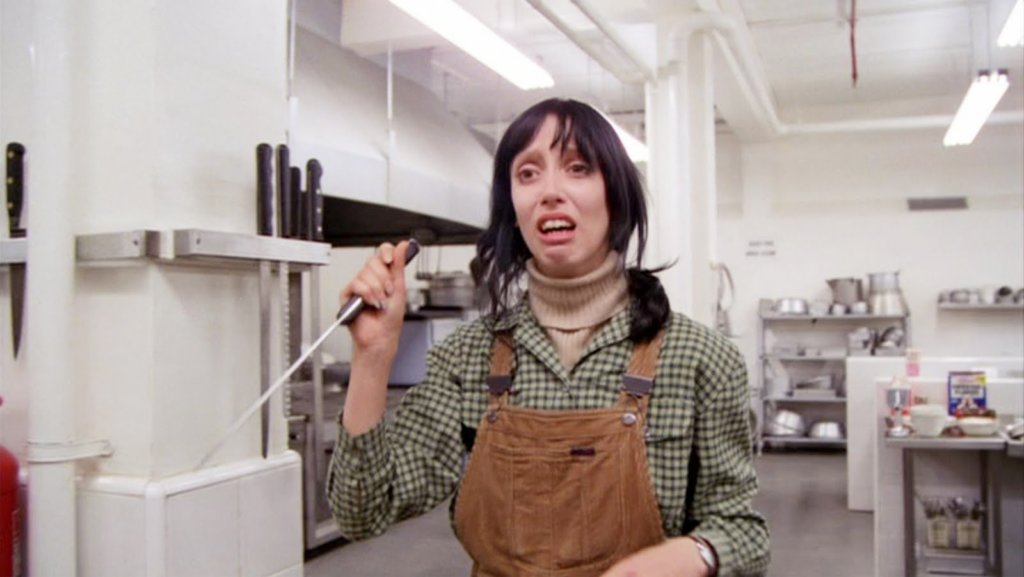
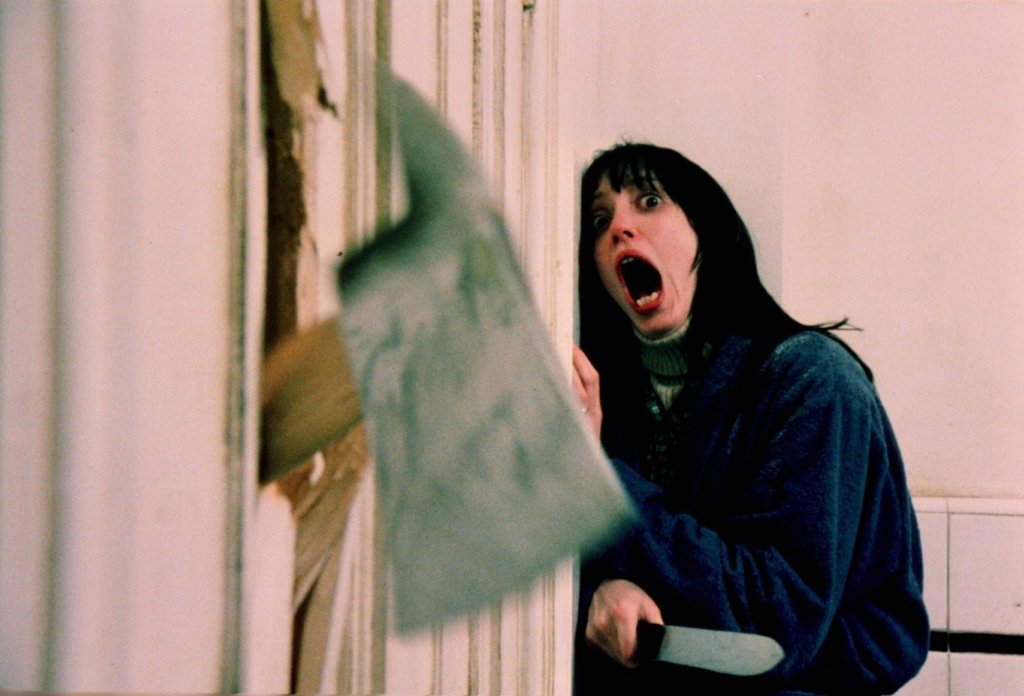
12. Looking for an Actor Psychotic Enough for the Role
Jack Nicholson wasn’t the first actor considered for the role of madman Jack Torrance. Kubrick first considered Robert De Niro for the role, but ruled him out after watching Taxi Driver. Kubrick didn’t think De Niro was psychotic enough. Robin Williams was also dismissed after Kubrick deemed him too psychotic for the role.
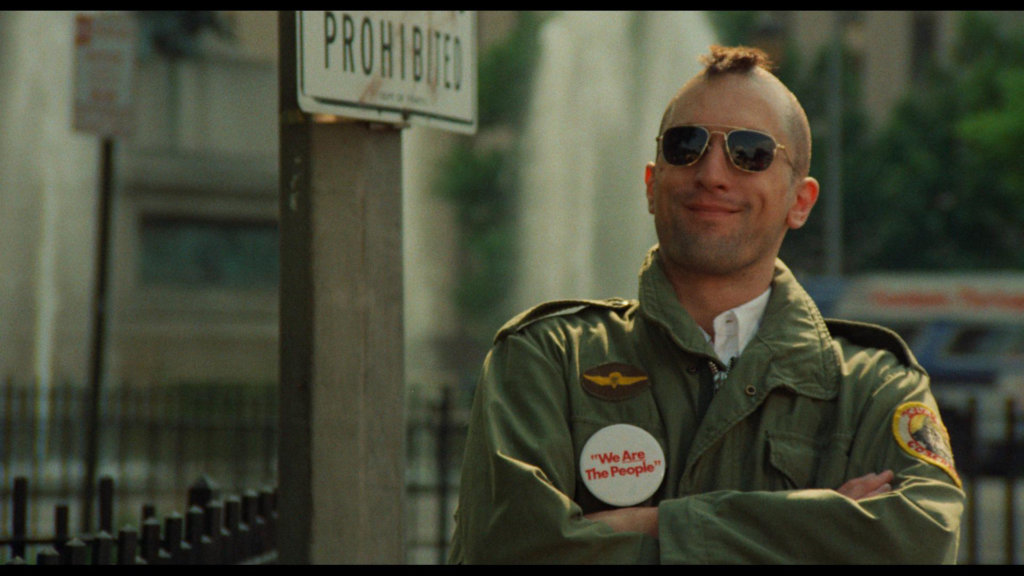
13. Stephen King Thought the Movie Fell Flat
In a 1983 Playboy interview, author Stephen King criticized the film adaptation of his book. He said, “I’d admired Kubrick for a long time and had great expectations for the project, but I was deeply disappointed in the end result. Parts of the film are chilling, charged with a relentlessly claustrophobic terror, but others fell flat.”

More in Movies
-
Amazing “Free Guy” VFX Breakdown
Whilst putting together our latest Breakdown of the VFX used in 20 Century Studio’s “Free Guy”, we interviewed Digital Domain’s VFX...
February 24, 2022 -
10 Reasons Why Practical Effects Are Better Than CGI
When Steven Spielberg recreated towering brachiosaurs using only computer wizardry for his 1993 classic Jurassic Park, computer-generated imagery (or CGI) skyrocketed...
July 13, 2018 -
12 Movies That Broke Impressive Worlds Records
Every year, more than 700 films are released in Hollywood. That number is steadily rising, which means that movies have to...
April 23, 2018 -
The 30 Sexiest Films of All Time
Love, sex, and passion are in the air whenever you watch one of the movies on our list. The displays of...
April 16, 2018 -
13 Surprising Facts About Marvel and Disney’s ‘Black Panther’
It only took a single Thursday evening in release to turn Disney’s newest superhero flick, Black Panther, into a bona fide...
March 9, 2018 -
12 Movie Bloopers That Accidentally Became Movie History
Unlike a lot of other art forms, filmmaking is a genuinely collaborative effort. There’s no such thing as complete control on...
February 2, 2018

